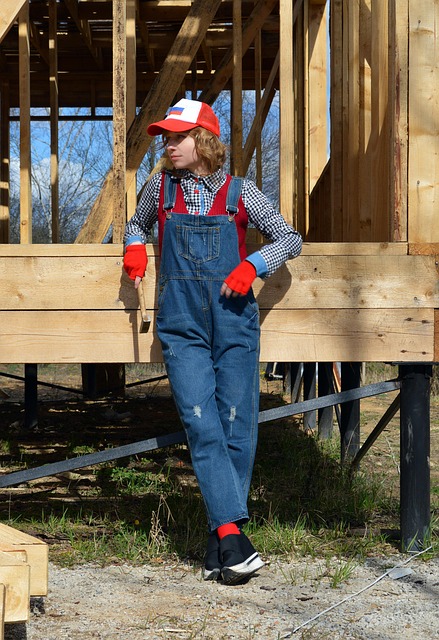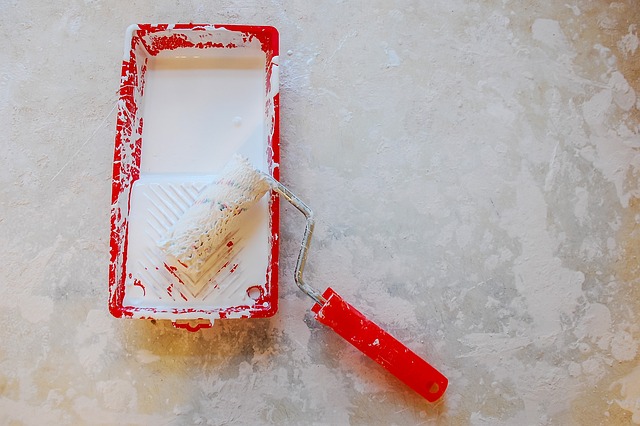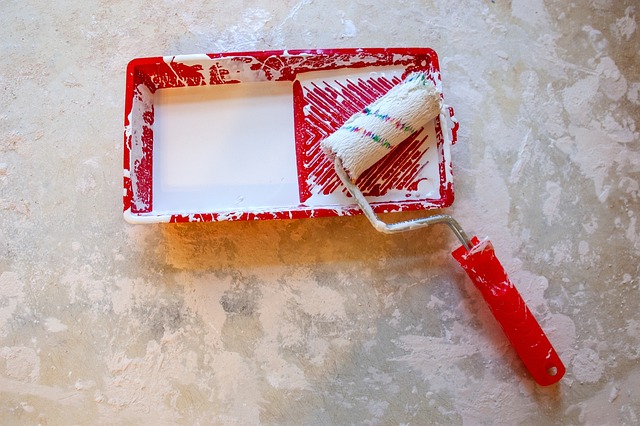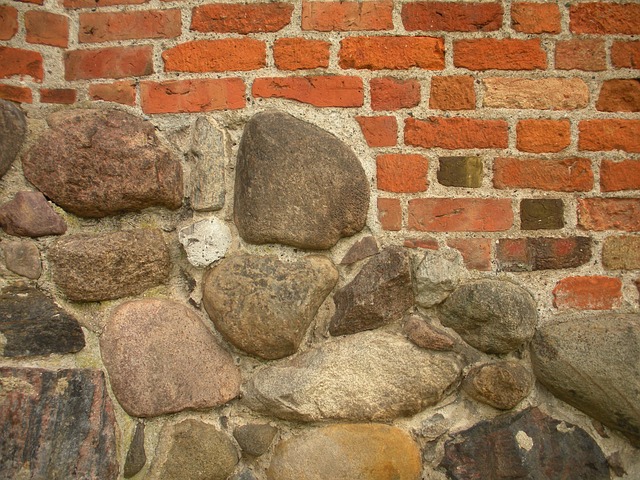Concrete anchor bolts are essential for Foundation Repair with Warranty, offering long-term stability against environmental forces. Various types cater to different applications and load capacities, with structural concrete bolts providing exceptional strength and durability for permanent fixes. Proper installation, guided by detailed processes, ensures structural integrity. Avoiding common mistakes in bolt placement is crucial. Using warranty-backed anchor bolts guarantees stability, eliminating costly future repairs, especially in seismic or extreme weather areas. A strategic selection of warranties provides peace of mind, covering both bolt material and labor, ensuring structure integrity over time.
“Uncover the unsung heroes of foundation repair: Structural Concrete Anchor Bolts. These powerful fixtures play a pivotal role in reinforcing and restoring structural integrity, especially in older or damaged concrete structures. This comprehensive guide explores the intricacies of anchor bolts, from their fundamental functions to the various types and installation techniques.
We’ll navigate through the process, highlighting best practices and common pitfalls. Additionally, real-world case studies will demonstrate the transformative impact of anchor bolt applications, ensuring your project is not just successful but also backed by a solid warranty.”
Understanding Concrete Anchor Bolts: Their Role in Foundation Repair

Concrete anchor bolts play a critical role in foundation repair, serving as robust fastening elements that secure structural components to concrete. These bolts are particularly essential when reinforcing or stabilizing existing structures, ensuring longevity and stability against various forces like earthquakes or heavy loads. By offering a durable connection between metal braces or fixtures and concrete slabs, they form the backbone of effective foundation repair solutions.
When it comes to foundation repair with warranty, concrete anchor bolts are often the linchpin. Professional contractors rely on these bolts to enhance structural integrity, allowing them to offer long-term guarantees on their work. This is because anchor bolts provide a reliable and permanent solution, enabling buildings to withstand environmental challenges while maintaining their structural soundness.
Types of Structural Concrete Anchor Bolts and Their Applications

Structural Concrete Anchor Bolts come in various types, each designed for specific applications and load capacities. One common category is mechanical anchor bolts, which utilize a threaded shaft and a nut or sleeve for securement. These are versatile and ideal for temporary or non-permanent installations, making them useful in construction projects where adjustments might be needed. Another type is the concrete screw anchor, known for its simplicity and ease of installation. Concrete screw anchors are suitable for lighter loads and can be a great choice for securing items like handrails or signs to concrete surfaces without causing damage.
For more substantial and permanent fixes, structural concrete bolts with weldable ends are often employed in foundation repair and reinforcement projects, especially when a strong bond with the concrete is required. These bolts provide exceptional strength and durability, making them ideal for critical applications that demand long-lasting solutions. In situations where existing structures need reinforcement or repair, these specialized anchor bolts can be installed with a warranty, ensuring peace of mind for property owners and structural engineers alike, particularly in cases of foundation repair.
Installation Process: Step-by-Step Guide for Reliable Anchors

The installation process of structural concrete anchor bolts is a meticulous task that demands precision and adherence to safety standards for reliable foundation repair with warranty. Here’s a step-by-step guide to ensure effective bolting:
1. Preparation: Begin by assessing the structure’s needs, selecting the appropriate bolt length and size based on load requirements. Ensure the concrete surface is clean, dry, and free from contaminants to guarantee a solid anchor. Drill a pilot hole that’s slightly smaller than the bolt diameter using a diamond or carbide-tipped drill bit. The depth of the hole should be at least two-thirds of the bolt length.
2. Bolt Placement: Position the anchor bolt in the drilled hole, ensuring it’s straight and level. Use a wrench to tighten the bolt according to the manufacturer’s guidelines. It’s crucial to achieve the correct torque to secure a strong hold without causing damage. After tightening, verify the bolt’s stability and adjust as needed. This step is vital for the structural integrity of any foundation repair work, ensuring long-term reliability.
Advantages of Using Warranty-Backed Anchor Bolts

Using warranty-backed anchor bolts offers significant advantages for foundation repair projects, ensuring long-term durability and peace of mind. These specialized bolts are designed to provide a strong and reliable connection between existing concrete structures and new repairs or additions. One key benefit is their ability to withstand extreme loads and environmental stresses, making them ideal for challenging conditions where traditional bolts might fail.
With a warranty attached, these anchor bolts offer extra protection. If installed correctly, they guarantee structural integrity for years to come, eliminating the need for costly maintenance or repairs. This not only saves time and money but also ensures the safety and stability of buildings, especially in areas prone to seismic activity or extreme weather conditions. Foundation Repair with Warranty becomes a reliable solution when using these high-quality bolts.
Common Mistakes to Avoid During Concrete Anchor Bolt Placement

When it comes to foundation repair, concrete anchor bolts play a crucial role in securing structural elements effectively. However, improper placement can lead to costly mistakes and even compromise the integrity of your home or building. Here are some common errors to avoid during concrete anchor bolt installation:
One frequent mistake is neglecting to assess the existing conditions thoroughly. It’s essential to evaluate factors like soil composition, moisture levels, and nearby structures before drilling. Inadequate preparation can result in weak anchors that may shift over time, leading to further foundation issues. Additionally, using the wrong bolt length or type for your specific application is a frequent blunder. Always match the anchor bolt size and depth to the project requirements, ensuring it provides sufficient holding power without causing damage to surrounding concrete. Remember, incorrect installation might require costly Foundation Repair with Warranty services down the line.
Case Studies: Successful Foundation Repairs with Anchor Bolts

In many instances, buildings that have settled or experienced structural damage due to poor foundation can be repaired effectively using anchor bolts. Case studies show that concrete anchor bolts have been instrumental in successful foundation repairs, offering a durable and cost-effective solution. For example, a recent case involved an older commercial structure that had developed significant differential settlement, leading to cracks in the walls and floors. By installing a series of high-strength anchor bolts into the existing concrete foundation, engineers were able to secure new structural elements, effectively stabilising the building.
This approach not only resolved the immediate structural issues but also provided a long-term solution with a warranty, ensuring peace of mind for both property owners and tenants. The use of anchor bolts in this scenario is a prime example of how innovative techniques can address complex foundation repair challenges, resulting in safer and more stable structures.
Choosing the Right Warranty for Your Concrete Anchor Bolt Project

When undertaking any foundation repair or structural enhancement project involving concrete anchor bolts, selecting the appropriate warranty is a strategic decision that ensures long-term peace of mind. The right warranty will safeguard your investment and provide a safety net against potential issues arising from material defects, installation errors, or environmental factors. Look for warranties that cover both the bolt itself and the labor involved in its placement to ensure comprehensive protection throughout the project lifecycle.
In the realm of concrete anchor bolts, warranties can vary significantly in terms of scope and duration. Opting for a reputable manufacturer’s warranty backed by industry-recognized standards guarantees quality and performance. Additionally, consider extended service contracts that offer ongoing support and coverage, especially if your project involves critical structural elements or is subject to extreme environmental conditions. This proactive approach to Foundation Repair with Warranty demonstrates a commitment to upholding the integrity of your structure over time.
